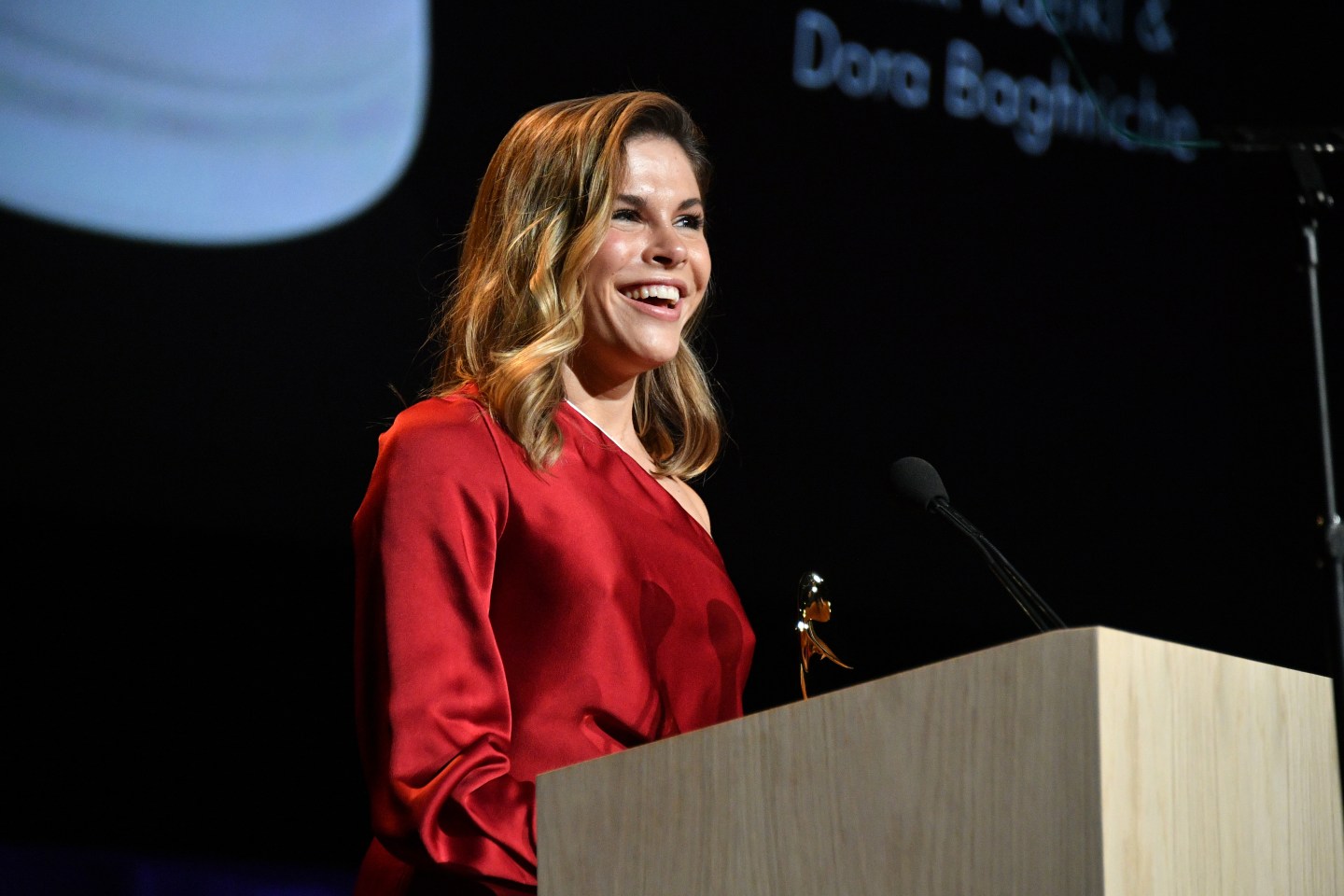The beauty brand Glossier announced its new CEO last week: a hair and beauty veteran, the former CEO of Jen Atkin’s Ouai, and until recently the CEO of specialty beauty for Procter & Gamble. His name is Colin Walsh—and his hiring set off a debate in certain corners of Glossier’s world.
Founded by Emily Weiss more than a decade ago, Glossier has always set itself apart in the industry with a focus on community. Its original taglines were as a “people-powered” brand that was “democratizing beauty.” Weiss was part of the 2010s wave of female founders, and her profile helped elevate the brand. It was early to experiential retail, with its stores inspired by the Apple Store experience—a destination, not just a channel. In addition to makeup and skincare, there’s merch, from its famous pink pouches to Glossier-branded basketballs.
It has an active sub-Reddit, where passionate fans discuss its latest product drops. That’s one place people have been debating Walsh’s hire over the past few days. He takes over from CEO Kyle Leahy, whose departure was announced in June. Leahy became the brand’s first professional CEO in 2022—most of her experience was in retail at Cole Haan—and she helped Glossier launch in Sephora and mature from a buzzy, venture-backed startup to an omnichannel business with sales near $300 million. Leahy wrote on LinkedIn in June that “the board and I believe this is the right moment to bring in the next CEO to lead a new phase of growth.”
Many of Glossier’s fans seem to agree that the brand could use some shaking-things-up. It was once the brand for young beauty shoppers, and it now faces stiffer competition from newer entrants like Rhode, which sold to Elf Beauty for $1 billion in May (Glossier hasn’t found a buyer yet).
So what’s the problem? Some Glossier fans weren’t happy that the person who will power this next chapter of their beloved brand is a man. “Part of Glossier’s original appeal was that it was founded by a woman and marketed as a ‘for us, by us’ kind of brand,” one person wrote on Reddit, citing stats about female founders getting just 2% of venture funding.
There’s an impression that the industry is female-dominated. And it’s true that most new, buzzy brands are founded by women, and women power the beauty workforce. But the biggest beauty conglomerates are just like the rest of the Fortune 500: mostly run by men. P&G, L’Oréal, Shiseido, and Estée Lauder all have male CEOs. (Some exceptions: Ulta Beauty, which named Kecia Steelman CEO this year, and Coty, which is run by Sue Nabi.) Glossier has had men on its executive team before. And it’s bigger than a startup now, aiming to become one of these 100-year, legacy brands.
Any feeling of disappointment at Glossier’s latest hire has almost nothing to do with Glossier’s future as a business or Walsh’s qualifications as a CEO. One Redditor wrote that it gave them a “slight sinking feeling in [their] heart:” “It actually really seems like he’ll do a good job, I just can’t believe they couldn’t find a woman to fill the post who would have done an equally good job while maintaining that brand identity that made Glossier stand out.”
I think it comes down to the cultural moment we’re living through, which is a problem beyond Glossier’s control. Once again it all goes back to the patriarchy, to the manosphere, to Trump. For some women and girls, it feels like we can’t have anything right now—not even the job running our favorite beauty brand.
So, no, a beauty brand doesn’t need a female CEO. Like any company, it should be run by the person who’s best for the job. (And Glossier still has Weiss as executive chair.) But it is a bit of a bummer when the biggest moments remind us that beauty can still be yet another industry where women hold the purchasing power as consumers, but not the power as business leaders.
Two things can be true: Glossier’s board made a smart hire—and we should see more women atop the industry that their dollars power.
Emma Hinchliffe
emma.hinchliffe@fortune.com
The Most Powerful Women Daily newsletter is Fortune’s daily briefing for and about the women leading the business world. Subscribe here.
ALSO IN THE HEADLINES
New York Times CEO Meredith Kopit Levien has a long-threatened lawsuit on her hands. Trump sued the media company for $15 billion, alleging that it's a "mouthpiece of the Democrat Party." The Times called the suit meritless. Kopit Levien told Fortune earlier this year that the news organization would "not be cowed [by Trump]. ... Not now. Not ever." NPR
The fight between the Fed and the White House continues. A court ruling blocked Trump from removing Fed governor Lisa Cook; the White House now says it plans to appeal. Bloomberg
Claudia Sheinbaum achieved another milestone for Mexico. Known internationally for her success dealing with Trump, the president led the country's Grito de Dolores, or national cry of independence, Monday night. It's the first time a woman has ever led the symbolic moment in 215 years. New York Times
The return of Outdoor Voices includes an equestrian collection. Ty Haney's first big pivot since returning to Outdoor Voices capitalizes on her love for riding horses at home in Colorado. Wall Street Journal
ON MY RADAR
The reinvention of Tory Burch Vogue Business
The $140 million brand built on beige cashmere sweaters Wall Street Journal
Samin Nosrat is redefining the good life Vogue
PARTING WORDS
"I think you have to find out who you are alone before you can really be with somebody else."
— Jenny Han on the character Belly's fate in the much-anticipated series finale to her show, The Summer I Turned Pretty













